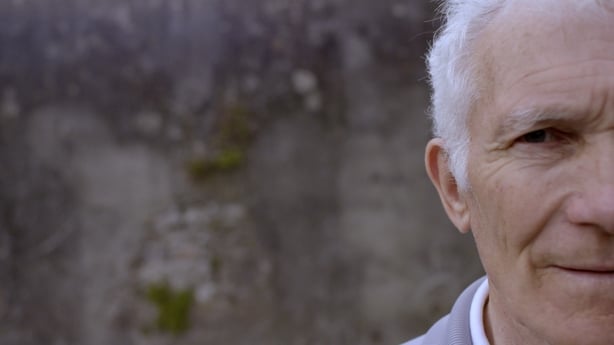Trying to interview people when a court case is over is a delicate and difficult job. Many hours of a court reporter's life are spent hanging around corridors, waiting for the right moment to approach someone. We try to be sensitive, but it never feels pleasant. However, after more than 12 years of dealing with people during the most vulnerable and horrific periods of their lives, I've learned that it's an important task.
Of course, there are people who, understandably, don't want to talk – and others who are so concerned about being misquoted, they won't even say the word 'no'. Instead, they avoid eye contact and turn away. Despite this, I have often found it surprising just how many people desperately want to speak publicly. For them, discussing what has happened to them or to their loved ones is vital.
There are brave and inspiring victims of abuse and sexual assault, like Sophia Murphy and Suzanne Connolly, who want to expose inadequacies in the system and encourage others to get help. There are those who've sought compensation for catastrophic injuries and want to prevent the same thing happening to others. And there are mothers, fathers, partners and children of people who've been violently killed, who want to honour the memory of their loved ones and give them a final voice.
The team behind the new documentary series 'Finné' on TG4 say the series has been inspired by the idea of giving people who have endured challenging times the time and space to use their voice and share their stories. 'Finné' means 'witness'. Series producer/director, Paddy Hayes, says they were particularly inspired by the testimonies that emerged during the marriage equality referendum and the referendum to repeal the 8th amendment, as well as those sharing their experiences as part of the #metoo movement. "Personal testimonies change minds and attitudes," he says.
Sraith nua le @Orlaodo ag tosú amárach. Finné new series starts tomorrow 21.30. #Fómhar18 pic.twitter.com/LYTLiaikZQ
— TG4 (@TG4TV) September 4, 2018
The series uses the "eye direct" device, where the person telling their story looks straight down the lens and speaks to the audience. Hayes says they wanted to concentrate on keeping them in vision as much as possible.
The stories chosen for the first series of Finné are not all connected to the justice system and are all very different. The common thread is what Hayes describes as "searing personal testimony" – ordinary people telling extraordinary stories of frailty and resilience.
Some of those recounting their experiences have been at the centre of the most dramatic news stories in this country in the last 50 years. Giving them the space to recount their own gripping experiences, as they personally recall them, brings out nuances that are inevitably missed in short, contemporaneous reports.
"The stories are diverse but the storytellers are all people who overcame huge psychological pressures against the odds"
When, towards the end of the first episode, Martin Conmey shakes his head and says "when you're innocent, you don't give up...never..." it carries the unmistakeable ring of authenticity. Conmey was wrongfully convicted for the manslaughter of his neighbour, Una Lynskey, in 1971 and spent three years in prison.
When I spoke to him for RTÉ News, outside court in 2010, after his conviction was finally quashed, he was shy and shocked; reluctant to say much. But in 'Finné', he describes eloquently, with a remarkable lack of bitterness, how he and his friends, three carefree young men, ended up in a nightmarish situation. And how he eventually won his fight for justice. His composure falters on very few occasions, making those moments all the more powerful.
The next episode deals with the story of Gail O'Rorke who was acquitted of helping her friend, Bernadette Forde, take her own life. Listening to Gail gives a rare insight into how a defendant feels when standing trial. In one short sequence she describes having to take off her jewellery, tone down her make up, and cover her tattoos before facing the jury. "These people are going to judge you," she says. Her husband, Barry explains how they watched videos showing life inside Mountjoy Prison before the court case in order to "desensitise" Gail and prepare her to face life behind bars. The programme gives a fascinating account of Gail's own background and the events that saw her become the first person in the State to be charged with this offence.

Episode three deals with Peter Mulryan's quest to get answers about what happened to his sister in the mother and babies home in Tuam. The series also tells the extraordinary story of the controversy over the burial of hunger striker, Frank Stagg, after his death in Wakefield Prison in 1976. His brother George and sister Martha describe how they felt their brother's coffin was "hijacked" by the state, after the flight carrying it was redirected from Dublin to Shannon. Their story is accompanied by remarkable footage from the time.
In further episodes, Ann McCabe speaks about her battle to get justice for the memory of her husband Detective Garda Jerry McCabe, killed by the IRA in Adare, Co Limerick, in 1996. Louise Hannon tells us about being the first transgender person to take a successful sexual discrimination case against her employer and her previous life as a truck driver and farmer. And archaeologist, Pat Wallace, describes his efforts to save Wood Quay.
Paddy Hayes says these diverse storytellers are all people who overcame huge psychological pressures against the odds. "It's about the unquenchable triumph of the human spirit," he says.
Orla O'Donnell is Legal Affairs Correspondent for RTÉ News and narrator of Finné. Watch Finné on Wednesdays at 9.30pm on TG4.


